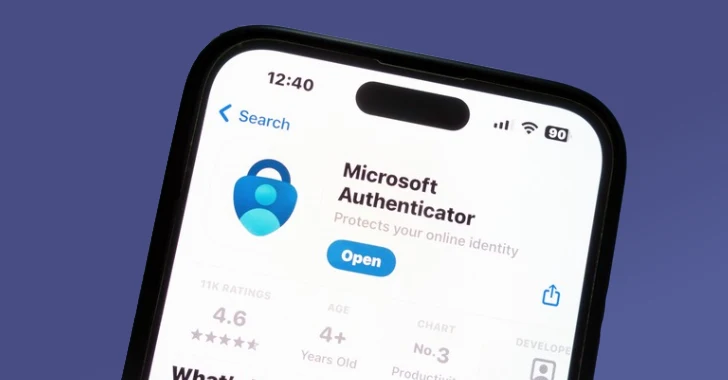The last time the courts seriously weighed the wisdom of breaking up a giant technology company was a quarter-century ago, after Microsoft was found to have illegally stifled competition in personal computer software.
A Federal District Court judge said yes to forcing Microsoft to split in two, separating its monopoly Windows operating system from its Office productivity products and other software. But an appeals court threw out the order, calling the breakup option “a remedy that is imposed only with great caution, in part because its long-term efficacy is rarely certain.”
In a pair of landmark proceedings this month in two Washington courtrooms, the issue of possibly breaking up a big tech company will be on the judicial table again.
In an antitrust trial that began on Monday, the Federal Trade Commission argued that Meta maintained an illegal monopoly in social media through its acquisitions of Instagram and WhatsApp. The agency seeks to force Meta to divest both. Next week at a separate proceeding, a federal judge will hear arguments from the Justice Department about why the court should break up Google in order to remedy the company’s monopoly in internet search.
“Divestiture can be an entirely acceptable remedy, depending on the severity of the harm,” said William Kovacic, a law professor at George Washington University and a former chairman of the F.T.C. “But it can be risky surgery.”
For generations, the courts have faced the quandary of what action to take in major antitrust cases once a dominant company has been found to have engaged in anticompetitive behavior. In a 1947 Supreme Court ruling, Justice Robert H. Jackson memorably wrote that if a court’s solution did not open the market to competition, the government would have “won a lawsuit and lost a cause.”
But while a court’s ruling is based on examining facts in the past, its remedy looks to the future. The goal is to free up markets rather than hobble them — and create a competitive environment that results in more new ideas, new companies, more innovation and lower prices.
The challenge is taking on new significance as regulators make a major push to rein in the tech giants in a string of antitrust cases objecting to the power they have over communications, commerce and information.
In a different lawsuit against Google, the Justice Department is awaiting a judge’s decision on the company’s dominance in advertising technology. The department has also sued Apple over its tactics to protect its lucrative iPhone franchise. The F.T.C. has sued Amazon, saying the company illegally shielded its monopoly in online retailing from competition.
This wave of antitrust litigation, including appeals, is likely to last for years. And if the government wins any of its cases, a judge could order a breakup — the worst-case outcome for the companies.
History shows that these orders can be effective, antitrust experts said. But the results in improving competition has been mixed.
Standard Oil, an energy giant founded by John D. Rockefeller in 1870, was the defining case of the progressive, trustbusting era of the late 19th and early 20th centuries. The company was broken up by the Supreme Court in 1911, split into 34 entities that had made up the original Standard Oil Trust, which controlled the oil industry’s production, refining, distribution and pricing. While that initially helped competition, over time the trust’s descendants became oil giants of their own, including Exxon Mobil, Chevron and ConocoPhillips.
The breakup of AT&T, in a settlement in 1982, followed a lengthy antitrust suit by the Justice Department, which accused the company of illegally monopolizing the telecommunications market in America. The local phone business was split into seven regional “Baby Bell” companies, and the order opened up the long-distance phone and telephone equipment markets, increasing competition and driving down prices.
In antitrust jargon, a “structural” solution like this generally means a breakup. But there are steps short of a forced sell-off that can shape markets and stimulate competition, antitrust experts said.
In 1969, under pressure from a government antitrust suit accusing it of monopolizing the computer market of its day, IBM unbundled its hardware from software — treating them as separate businesses, sold and priced independently. Software would no longer be “free,” included in the price of a computer. That helped ignite the rise of the commercial software industry, with Microsoft as the biggest winner.
Microsoft avoided a breakup, but its eventual settlement in 2001 contained a prohibition against contracts that had essentially used its Windows monopoly as a club by restricting personal computer makers from distributing the software of upstart rivals. That restraint kept the door open to new competition in browser software and search. Google was the leading beneficiary.
“Those were strong remedies without a breakup that created more competition,” said Fiona Scott Morton, an economics professor at the Yale University School of Management.
The next powerful tech companies to face courtroom scrutiny are Meta and Google.
On Monday, the F.T.C. and Meta, formerly Facebook, presented their opening statements in the U.S. District Court for the District of Columbia. Mark Zuckerberg, the company’s chief executive, then took the stand. The essence of the government’s case is that Facebook vastly overpaid more than a decade ago for Instagram and WhatsApp, to kill them off to protect a lucrative monopoly in social networking.
Meta replied that Instagram and WhatsApp had grown and flourished under its ownership. And, the company argued, there is plenty of competition in the social networking market, including the meteoric rise of TikTok.
Should the government win the Meta case, the likely remedial step, antitrust experts said, would be a court order to sell off Instagram and WhatsApp.
Next week in the same Washington court, Google faces the remedies stage in the lawsuit by the Justice Department and a group of states over its internet search monopoly. In August, Judge Amit P. Mehta found that Google illegally maintained a search monopoly.
To restore competition, the government asked the court to order Google to sell Chrome, its popular web browser, and either spin off Android, its smartphone operating system, or be barred from making its services mandatory on Android phones. Chrome and Android are powerful distribution channels for Google search.
Google has described the government’s list as a “wildly overboard proposal” that “goes miles beyond the court’s decision” and that would harm consumers by offering them inferior products. The company has also said it will appeal.
Tim Wu, a law professor at Columbia University who was a White House adviser on technology and competition policy in the Biden administration, supports breakups in the Google and Meta cases.
“If you want to stir the pot, structural solutions are clean and essentially self-executing — you break it up and walk away,” he said. (Mr. Wu writes for The New York Times’s opinion section.)
But any breakup order would be appealed, and the higher courts today seem to echo the skepticism of the Microsoft era.
In a rare unanimous decision in 2021, the Supreme Court ruled that the National Collegiate Athletic Association could not use its market power to stop payments to student-athletes. It was essentially a wage price-fixing case, decided entirely for the plaintiffs.
Yet Justice Neil M. Gorsuch, writing for the court, digressed to make a broader point about judicial restraint in antitrust matters.
“In short,” he wrote, “judges make for poor ‘central planners’ and should never aspire to the role.”









